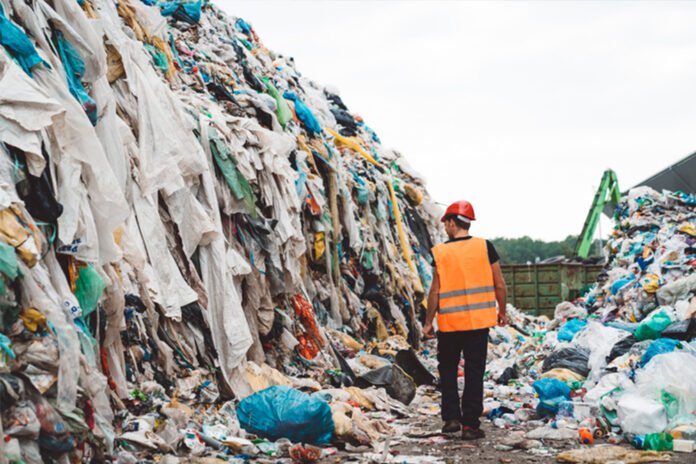A group of fashion brands, online clothing retailers, resellers, and e-commerce platforms urge the US Environmental Protection Agency (EPA) to tackle US textile waste.
The coalition, known as the American Circular Textiles Group (ACT), includes Swedish fashion retailer H&M, rental e-commerce platform Rent The Runway, fashion marketplace The RealReal, sustainable fashion brand Reformation, and online fashion thrift store thredUp.
The coalition aims to establish US leadership in textile waste and circular fashion policy with a strong focus on the waste hierarchy.
It is proposing significant changes to the Extended Producer Responsibility (EPR) law to include the reuse and recycling of textiles.
The letter commends the EPA’s efforts to address plastic and other waste in waterways and oceans, but is keen to address what is described as “the significant impact of textile waste on environmental health, human well-being, and climate change.”
ACT’s key concerns over US textile waste
The alliance warns the disposal of over 30 billion pounds of textile waste in landfills and incinerators annually not only imposes significant financial costs but also contributes to greenhouse gas emissions, particularly methane, making it the third-largest methane emitter.
Re-used garments shed fewer microfibres than new ones, making reuse a vital strategy for mitigating microfibre shedding during the care and laundering of garments. ACT advocates for the integration of filtration devices into washing machines to further address this issue.
ACT is concerned about the relationship between recycled polyester and the bottle industry and says the infrastructure for recycling polyester-based textiles into new fibres is underdeveloped.
ACT’s suggestions for tackling textile waste
To combat these challenges, ACT proposes amendments to existing EPR laws. It urges the EPA to include textiles in these regulations. Alternatively, the coalition calls for “the enactment of separate textile-specific EPR laws aligned with the waste hierarchy.”
In this regard, the group advocates for federal Congressional committees to work together to pass “bipartisan legislation that provides a unified roadmap for state and local textile reuse and recycling solutions.” Such an approach, according to the group, will ensure consistency, and accessibility, and avoid confusion arising from patchwork state and local laws.
ACT highlights several successful models, such as deposit systems, that incentivize textile collection and fund circular systems. States like Iowa and New York are said to have implemented bottle bill programs that have significantly reduced roadside container litter.
The coalition believes that adapting similar deposit systems to textiles can encourage consumers to engage in sustainable practices while supporting the necessary “logistics, sortation, and infrastructure for domestic reuse and recycling.”
By implementing these recommended strategies, it notes the fashion industry can make significant progress in reducing plastic waste, promoting circular fashion, and contributing to a more “sustainable and equitable future.”



